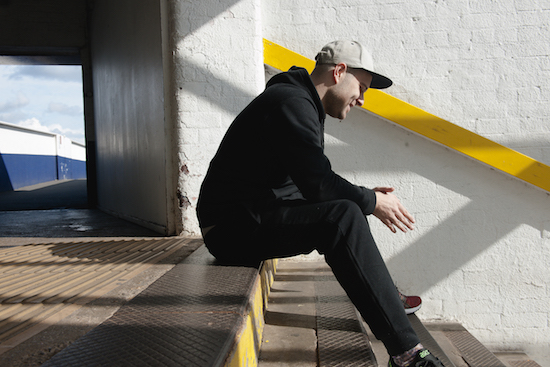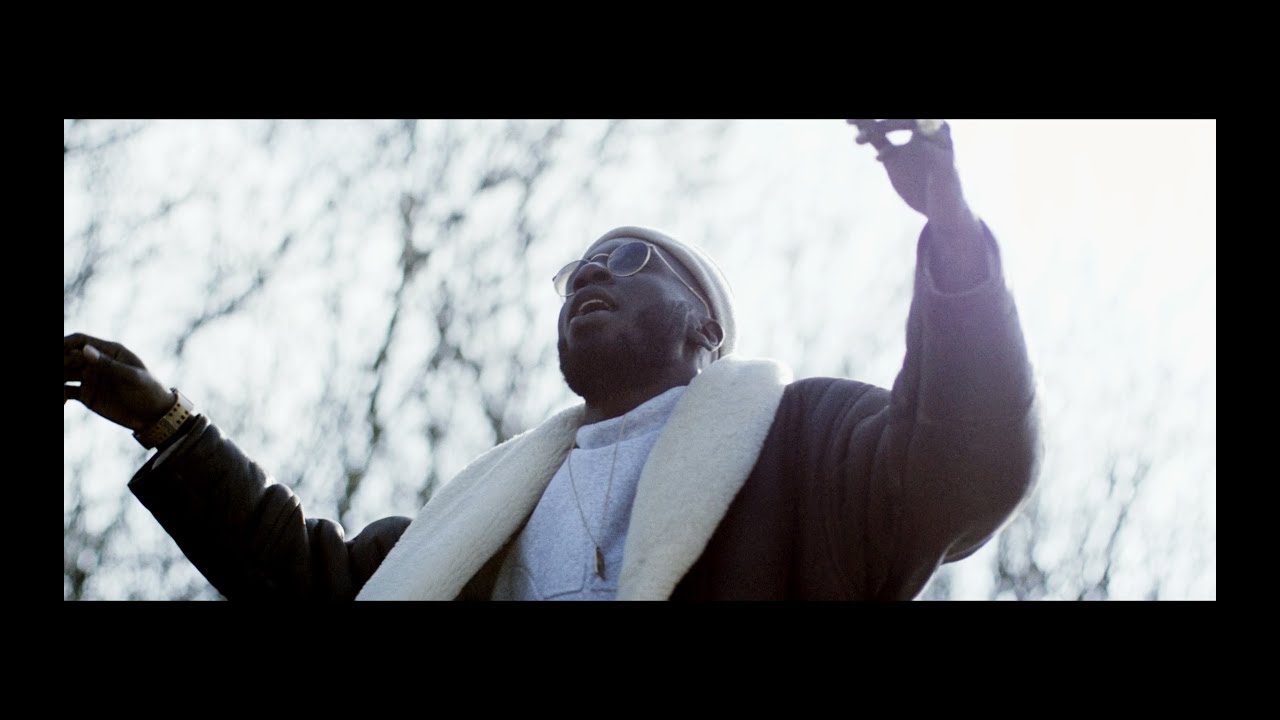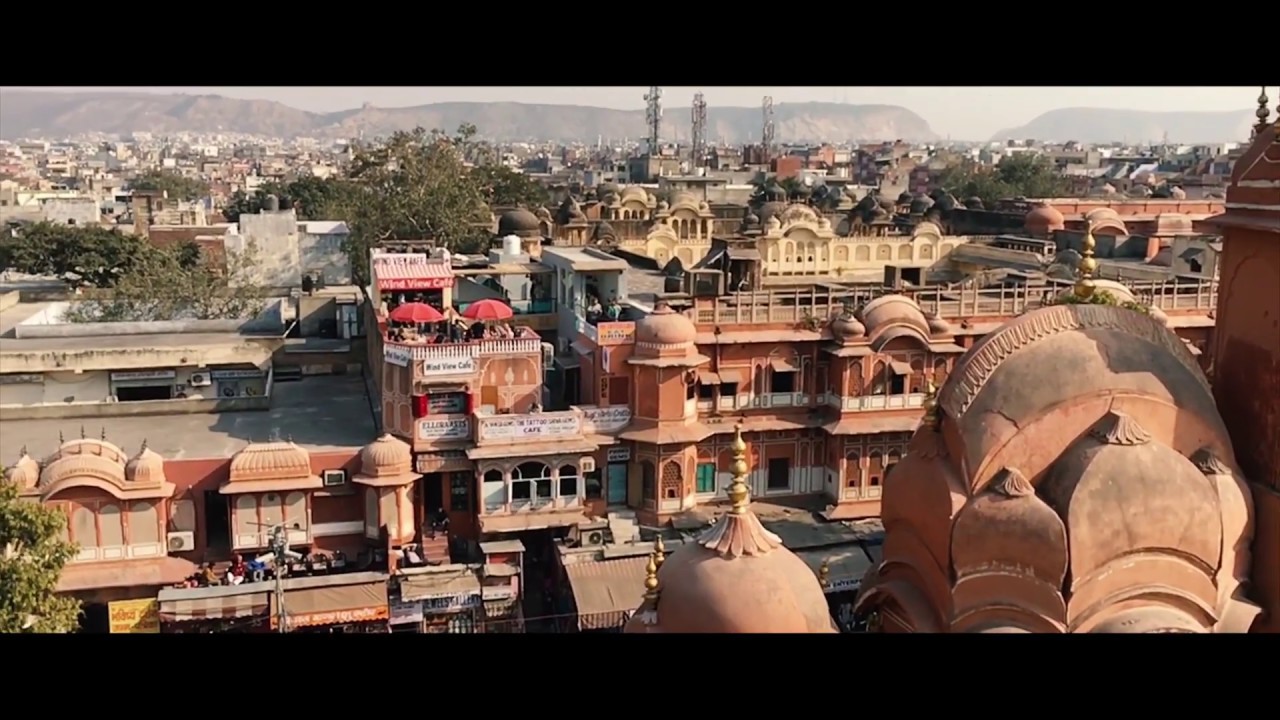This Is Where It Gets Good is bound to define Corin Douieb’s career so far. On his latest album, The Last Skeptik moves away from his roots in hip hop and trip hop and explores his own mental health journey in a series of tracks that he describes as being more electronic. In this very personal work, the Hackney-based DJ and producer explores the ups and downs in his relationship with his mental health and how he manages to navigate life whilst simultaneously getting to understand himself.
Long awaited, This Is Where It Gets Good features a series of guests who are very close to the artist, many of whom he counts as friends, one even as his girlfriend, which is perhaps not surprising given the subject matter. The record is the latest of a recent string of public conversation starters concerning mental health. He is the latest in a series of artists who have used their work as a means of contributing to the fast-growing dialogue surrounding mental health including Lil Uzi Vert and fellow Londoner, Stormzy. This Is Where It Gets Good chronicles these highs and lows, as The Last Skeptik’s expert production allows us a candid insight into his mind.
Catharsis and music have always been linked; music has always been a means of processing one’s own emotions. The Last Skeptik sat down with tQ to discuss how he’s taking it a step further, using his work to not only catalogue the ups, but also the downs and every emotion felt in between. Here, he tells us how he’s found a form of therapy through his own personal brand of “emo-thug” expression.
Do you believe that you owe your journey into music to the environments you placed yourself in as you were beginning your career? Where and when did this journey begin?
The Last Skeptik: I started making music when I was really young, around 10 or 11 years old in school. I’m from Finsbury Park, so hip hop and rap were just around me, then a bit later came UKG and the sounds of growing up in inner city London. When I was in school I was in a rap crew and I used to go to the music rooms with Sway who’s a couple of years older than me, he took me under his wing then I started making beats which I continued to do throughout my teens. I started building up a second hand CD collection, mostly West Coast and Dirty South hip hop so it would be like Tupac, DJ Quik, Dr Dre and everything I could get my hands on. I just wanted to make music that emulated that sound. Going through all the dramas of being a teenager in London, you have to grow up very quickly but in a different kind of way and so me making beats was my therapy. I just continued on through that.
You’ve done a lot in UK hip hop, such as producing Giggs. What else would you consider to have been the definitive moments of your career so far?
TLS: As someone that’s hugely self-deprecating, and I’ll say that over ‘humble’ any day, I still think the best parts of my career haven’t happened yet. I’ve worked on a lot of stuff that I’m hugely proud of such as the new album and especially my first solo album. Thanks For Trying signified a confidence change within me. The first album was largely instrumental, super emo, angry and cinematic. That meant a lot, as all I ever wanted to do since I was a kid was make a record that could have been the soundtrack to a film. I always admired the way that film scores could engineer the emotions of whoever watched that scene. I always wanted to control people’s emotions like that, or at least guide them. Of course, producing the record with Giggs on it was incredible but to be honest, working with my mates is the most fun that I had, and is still to this day the main reason why I do it. Every artist I’ve gotten in is a mate, or we become mates through the music.
Who would you credit as having influenced the style of music you’re producing today?
TLS: My musical style changes with every song that I make. I jokingly referred to it one time as ‘emo thug’, and I think that kind of stands because it’s got equal parts of the aggressive confidence of the Dre beats I grew up listening to, and the emotion of like… emo music! [LAUGHS]. I used to love UNKLE’s first album, and the kind of trip hop nature of that. Massive Attack, Cinematic Orchestra always inspired me as well. People like Pharrell and Timbaland. Like, Jesus! I used to sit there and study their beats, and I still do! But, I put this new album up as electronic because there’s no way its hip hop – there’s only like two songs with rappers on them!
On the record, there are so many different instrumental combinations and different styles – from a technical perspective, was this a challenge in terms of production?
TLS: It all kind of came about organically. I was recording it over a period of about a year and a half so I’d have musicians come in and do sessions for a number of different songs either for the album or other projects. I did a song for Kojey Radical, Look Like that he did on Colours recently, so I had the beat that I did for him and thought, “I have the harp in today, I’ll get the harp on that too”. As I made the beats for this record, I could see and hear in my head exactly what I wanted every musician to play. I would love to say that it was difficult but figuring out the instrumentation was the easiest part. Obviously, mixing it down was a nightmare. You want each instrument to shine and be heard, but at the same time you don’t just want it to sound like someone’s just smashing a bunch of tin pans together. Recording it was actually really easy, because all of my musicians are amazing. I record everything in my bedroom. I still do and probably always will because I get a great sound in there. Every rapper I’ve worked with has recorded in my bedroom. The arranging of it as well is just so much fun because once it’s all recorded and everyone goes away, I’m kind of just left with like a huge variety of recordings that I get to chop up and pretend that they’re samples, you know.
I had no idea you recorded everything in your bedroom, that’s really cool!
TLS: Yeah! I never used to tell anyone before realising it inspires others. I just thought, fuck it. There’s nothing to be embarrassed about. I’ve recorded in big studios and it’s been terrible. The engineers have been shit and have supposedly done big pop records but they can’t the sound that I want. So I thought, “Why am I not just doing this all myself?” The whole album was made in my bedroom. It was entirely birthed there. I want young people to be encouraged by the fact that I didn’t have to pay a lot of much money to make it happen.
Seeing as this is such a personal piece of work, how did you determine with whom you’d collaborate?
TLS: All the people on the album are either friends of mine or people that are always round the house anyway. It was totally natural for them to have been on there. It wouldn’t have made sense for me to try and reach out to someone who wouldn’t have understood all the ups and downs. The album is about me trying to traverse and navigate my way through having anxiety and struggling with depression, so having people that really understood it and could encapsulate it in lyric form was vital. Matt Wills is a really close friend that I’ve been recording with for a long time. He understands all the different aspects to my depression, anxiety, aggression and happiness, so it made sense for him to be on four tracks. I listened to the All I Am instrumental on loop for like weeks so when Kim, Reader – my girlfriend came, I told her how important this beat was to me and that I don’t even think I could get anyone on it because it’s too special. She obviously knew exactly everything I was going through, and wrote something that fit so perfectly with what I was feeling. Everyone kind of slotted in.
It’s very clear that mental health is a crucial theme on this record, could you tell us more about how you interpreted what you were facing in this work?
TLS: The whole record is just therapy to me. When I first heard the opening song, Death I thought, “Whatever album comes next, this is the beginning of it – I know that”. That song has always meant change to me – the beginning of change. I wanted to work through a lot of my mental health issues and figure out a way of finding the strength to overcome them. For that reason, Death is the perfect starting point for this as it’s putting a foot in the ground and saying, “I’m kind of done with this. The journey begins now”. That’s where the title for the album came from as well.
Are you channelling pain or recovery through the music? Opening with Death is incredibly bold in comparison to tracks such as Keep It Simple and Overtime, which sound a lot more open and encouraging. Is the record more about the pain you endured or a move to recovery and redemption – or is it both?
TLS: I think you’ve described it perfectly. Part of therapy is the hope. You need to feel like there’s hope, warmth and happiness somewhere in there otherwise you’ll be more lost than you were to begin with. Part of the therapy is just diving in, embracing what you’re feeling and try to understand why it’s there. But also, knowing that you need to be kind to yourself. That’s the biggest piece of advice I give to people that suffer from anxiety too. I could have made an entire dark record – I’ve got enough songs for it, but I definitely didn’t want to. It’s about trying to access all the different parts of your personality. I put Don’t Forget as the last song because I think it’s also super important to not forget any part of your journey and acknowledge what you’ve been though. I can only speak from my personal journey and my personal struggles which are completely different from other individuals but if I can slightly help someone else understand themselves, then that’s perfect. Because I only make music, there’s so much emotion in the music itself that I hope people can tap into and feel the same way I feel when I listen to it
Do you feel like the various emotions on the track are directly representative of the various phases of your mental health journey?
TLS: Definitely. I can listen through the record and feel every emotion that I felt when I was making those tracks. The middle of the album gets a bit lighter because the fact with anxiety or depression is that it doesn’t hit you all the time. You’re kind of living with it and a lot of the time things can kind of be all right. But it’s a journey. Things can build up and knock you down in other kinds of ways, but you learn to live with it, somehow. I mean, I’m no expert. I think a lot of it is advice for myself to be honest. I think that I’m still learning, the journey is still going on but hopefully it helps.
Men’s mental health has been getting a lot of media attention in the past few years with many figures from Professor Green to Princes William and Harry speaking out publically and candidly. Did this dialogue encourage you to make this record, or was it a long time coming?
TLS: It was definitely a long time coming, but I also think that it’s super positive that everyone’s talking about it. I am however wary of everyone saying that it’s about men’s mental health. We all suffer from anxiety at one stage or another, we all worry, and we all feel like we’re not good enough – especially in our society where we’re under pressure from social media. It’s hugely important now to discuss and be open about how we’re feeling. Sure there was a big masculinity thing, there still is but it’s lessening. You’re going to be called a pussy less now if you’re a man and talk about it. I’ve been very open with every musician and artist that comes round to the house to record. I always talk about that stuff. I’ve encouraged people to go to therapy, I’ve encouraged them to discuss what they’re feeling because they can see that I’m mad open about it, and that doesn’t make me a pussy, that doesn’t make me anything. It’s just a side of your personality that if you don’t nurture and recognise it will knock you out.
So what’s next? Have you got any projects in the works?
TLS: Yeah a few! Reader’s EP is done and that’s the next thing to drop in January. It sounds amazing, mad electronic. Portishead meets James Blake. It’s really dark but really amazing. I’ve got an EP I produced for Reload who’s sick that I’m gonna put out as well as a mixtapes with loads of rappers like Trim and Nick Brewer and people like that. I’m just gonna keep on making shit loads of music and keep on putting it out over the next few months. That’s the beautify of having my own label – if I decide to put out a record tomorrow, I’m just gonna fucking get it done!
The Last Skeptik’s new album <a href=” https://thelastskeptik.bandcamp.com/” target="out">This Is Where It Gets Good is out now




